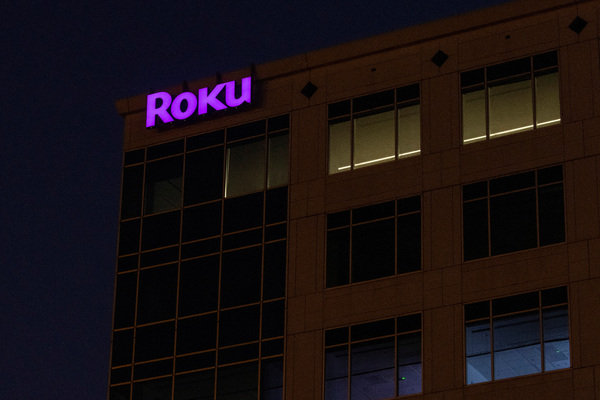A reshuffle or a rebound?

Will Amazon’s ban on non-essential deliveries have a lasting effect on order fulfilment once it’s completely lifted? When it comes to scale, flair for innovation, or proprietary logistics infrastructure, no retailer stands a chance of taking on Amazon. However, as online shopping is carving out an increasingly bigger share of retail sales, more and more of them join the arena either for fear of missing out or to fend off an existential threat. The bar has already been set high by Amazon with next or even same-day delivery, a sophisticated order tracking system and straightforward product return procedures at no extra cost. Little wonder then that the logical first step for a seller wanting to go online is to join Amazon’s FBA (Fulfilled by Amazon) scheme, which liberates them from all aspects of third-party logistics (3PL) once they’ve delivered the product to the Amazon fulfilment network. FBA can offer an unrivalled opportunity for growth for sole traders and start-ups with a sound business idea. It can also pave the way for getting listed on Amazon Prime, a subscription network of 15 million people in the UK eligible for one-day delivery. As with all good things, FBA also comes with trade-offs. What you can acquire is credibility and the chance to sell to a staggering number of customers. What you lose is any deeper knowledge of who those customers are: you’ll need to give up on getting any data that might give you insights into their behavioural patterns. You will also lose out on providing your customers with the unboxing experience, an important touchpoint if you’re online-only. Third-party logistics Up until the introduction of its “Essential Items” policy on 24 March, 94 per cent of Amazon’s sellers used the FBA service. A bit less than one third of them combined this scheme with FBM (Fulfilled by Merchant) to get the best deals for their large-size, low-margin products with a slow turnaround. They and an additional 6 per cent of Amazon sellers already have established relationship with third-party logistics firms, who have developed outcomes which are on a par with Amazon’s fulfilment standards. Failing to deliver on-time-in-full incurs considerable penalties on Amazon. In addition, no brand can bridge a precipitous disconnect between delivery terms for its various products in a world where customer promiscuity is the norm. The Amazon merchants that sellers can rely on in the time of the crisis are leading UK order-fulfilment companies. For them, late same-day-dispatch cut-off times and next-day delivery, integration with multiple e-commerce platforms and shopping carts, as well as pay-as-you-go warehousing are table-stake offerings. They are in possession of the tools necessary for meeting the demands of fast, flexible and trackable delivery. Some of them are confident enough to guarantee 100 per cent pick and pack accuracy, a key factor to successful fulfilment. A spike in order fulfilment demand Can the current spike in order fulfilment demand trigger a ripple effect? As Daniel B Kline of Motley Fool pointed out in a recent interview, “a lot of companies are throwing a lot of labour at getting you same-day or next-day delivery”. However, the persistence of manual labour means very different things for different players within the sector. In Amazon’s case, it’s a diminishing but still very considerable number of human employees working alongside state-of-the-art AMRs (Autonomous Mobile Robots), sortation robotic arms and piece-picking systems before the era of the fully automated warehouse kicks in in about a decade. Meanwhile, for successful but less technologically advanced fulfilment companies it is often humans scurrying between shelves, scales and printers: this preference for people over robots can even be positioned as a USP. When Amazon acquired warehouse robotics start-up KIVA in 2012 and stopped selling to the start-up’s clients, including retail rivals, a lot of new robotics start-ups sprang up to fill the vacuum. So much so that by 2019 automation had become much more accessible to retailers and 3PLs. As ABI Research’s Robotics in Ecommerce Fulfilment has pointed out, there has been “a growing variety of infrastructure-light robots dramatically expediting the ROI of warehouse automation.” The increasing number of robotics-as-a-service propositions are expected to further lower the barriers to the implementation of warehouse robots. FBMs have been filling in for FBA services while Amazon suspended the shipping of non-essentials. The question is whether they have managed to use this to opportunity to build trust with Amazon Sellers and their customers. And if so, are they going to be ready to take a step further and get proactive to meet increasing demand: will they gradually replace their manual processes with the kind of light-infrastructure robots mentioned in the ABI report? ParcelLab’s data show that online retailers in the UK were delivering 20 per cent faster than usual in the first week of April, with delivery dates down from 2.1 days to 1.7 days. This counterintuitive trend is partly down to order fulfilment companies raising their game, partly to factors brought about by the extraordinary circumstances such as the overall waiver of signatures on reception. It shows that even minor tweaks in processes can improve delivery KPIs significantly. More than that, it also helps put into perspective the difference between the pick rate of human warehouse workers and robots, which can be up to six times faster, and the scale of efficiency robotic solutions can bring to an order fulfilment operation. Alternatively, 3PL companies may just soon click back to business-as-usual and revert to more readily available human labour after the crisis.

Business Reporter Team
You may also like
Most Viewed
Winston House, 3rd Floor, Units 306-309, 2-4 Dollis Park, London, N3 1HF
23-29 Hendon Lane, London, N3 1RT
020 8349 4363
© 2025, Lyonsdown Limited. Business Reporter® is a registered trademark of Lyonsdown Ltd. VAT registration number: 830519543





